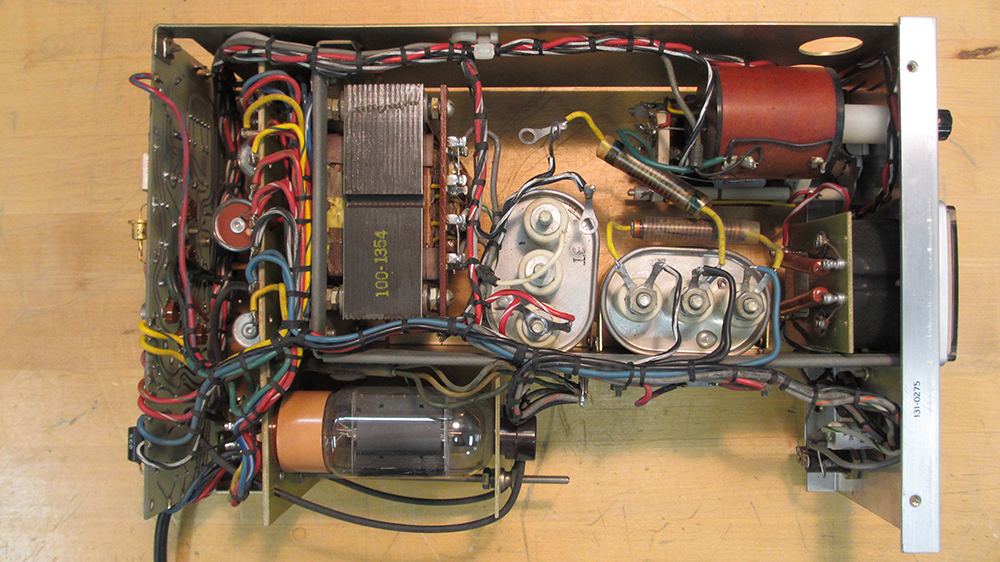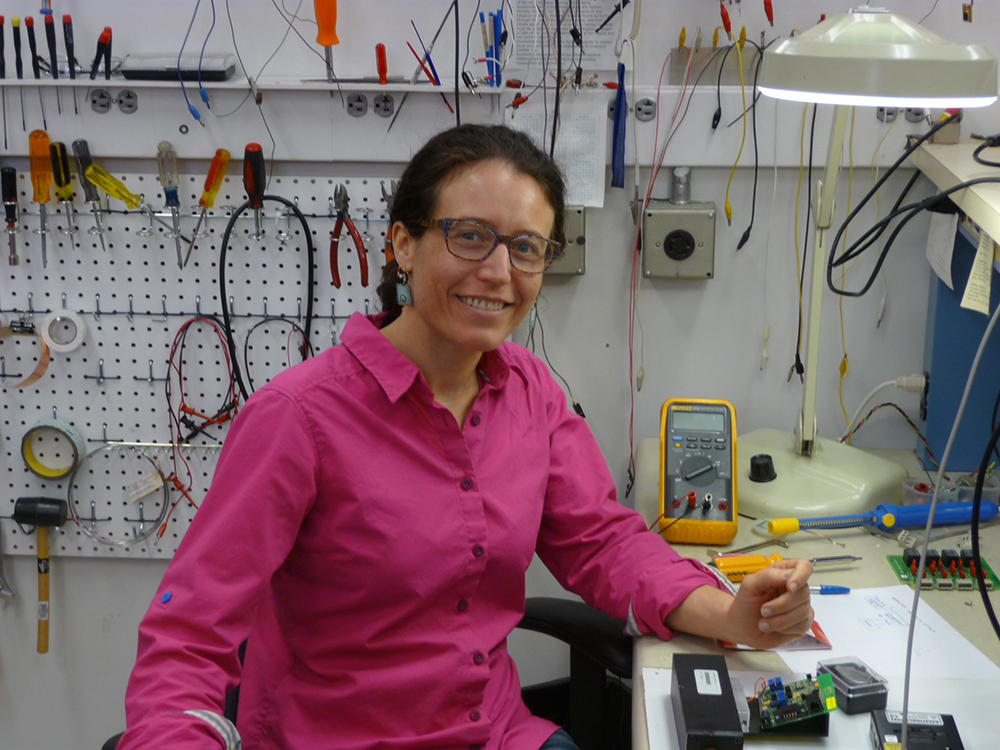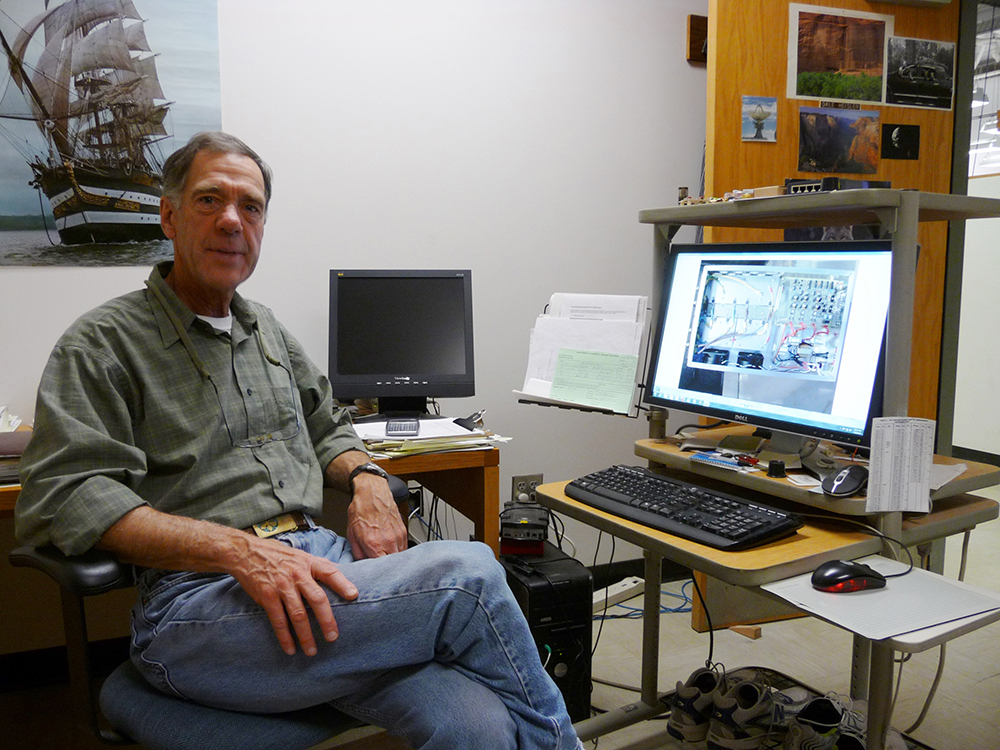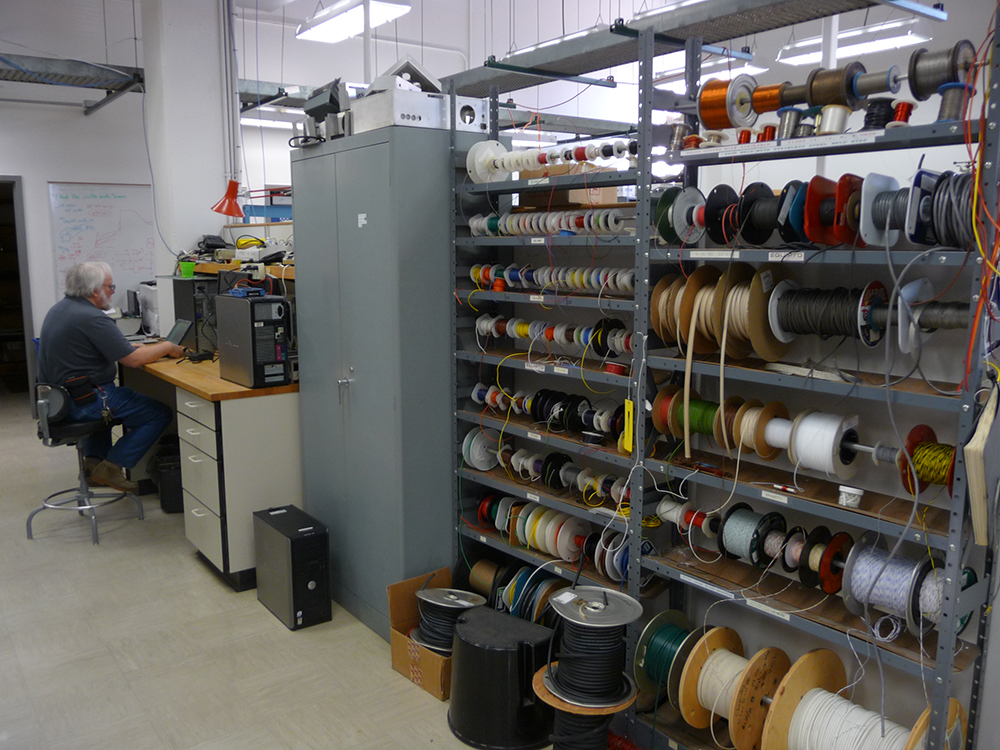Electronics Lab in its 42nd Year
 |
| An example of the kind of devices the Electronics Lab maintains |
 |
| Willow Toso, newest staff member of the Electronics Lab |
 |
| Dale Heisler, Director of the Electronics Lab |
 |
Willow Toso of the Electronics Lab, Department of Chemistry, points to a device containing vacuum tubes. ”We keep older equipment in service because replacement can be costly.” Although she’s the Lab’s newest member (arriving in the summer of 2013), she clearly enjoys working with some of its oldest equipment.
The Electronics Lab has a long history – 42 years’ worth – of offering its diverse services to the University and to the local research and medical communities. The Lab provides data acquisition and control systems, signal conditioners, transducers, custom software, repair, and computer support for the Department of Chemistry. Physics, Biology and many departments in the Colleges of Engineering, Mines and Earth Sciences, and Health also call on the Lab for design and repair needs. Beyond the campus, the Lab supports equipment used in exercise physiology programs at the nearby VA Hospital, and has licensed device designs and software to local Research Park startups. “We also run two large student PC labs, and are involved in AV equipment acquisitions,” notes Dale Heisler. Dale, the Lab’s current director, has seen 35 years of its history. Rounding out the team are Mike Scott, with 30 years in the Lab doing repairs and computer support, Shawn Laughlin, network administrator, and Dennis Edwards, department NMR service engineer with close ties to the Lab.
As I speak with Dale and Willow, I glean their shared interest in instrumentation that serves science. That is, this is a group that’s comfortable with science as well as engineering. They enjoy building the bridges that yield meaningful data from experiments. “We acquire, measure, and process electrical signals; it’s all about how to get the data,” says Willow. When the signal is a muscle impulse, it doesn’t hurt to have a prior career as a biologist -- as Willow does.
Dale is understandably proud of the Lab’s varied roles, and its successes in developing, maintaining, and acquiring equipment and software. And he enjoys the rapport-building that occurs when graduate students turn to the Lab for help with their experiments. “You forge gratifying connections,” he notes. Of course the students depart eventually,… but then there are new students and new problems to solve.
For her part, Willow is looking forward to teaching a planned electronics-for-chemists class. Topics will certainly include device shielding and grounding. “Some students will be interested in how [a device] works. Others would just like it to stop blowing up,” she says. But when it does “blow up,” the Electronics Lab will continue in its fifth decade of putting things back together.
